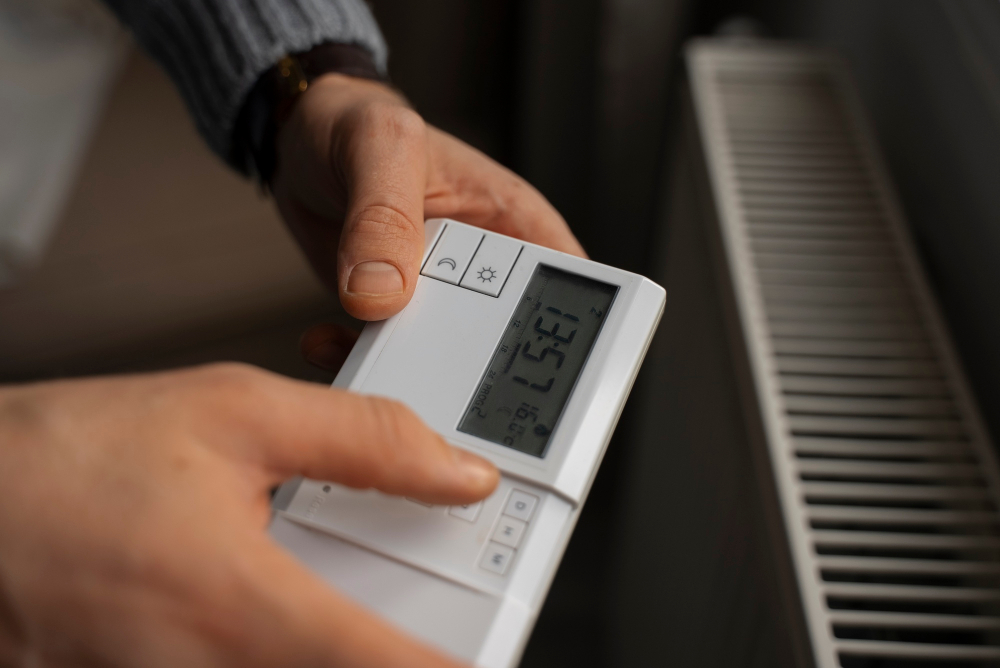
An HVAC unit is a reliable solution for all your heating, ventilation, and cooling needs. No matter how big a residential property or commercial facility is, it can reap the benefits of a comprehensive HVAC system.
However, HVAC units can produce large energy bills that can dent your pocket.
Still, it's possible to reduce your bills by using simple cost-cutting techniques. This blog discusses some easy-to-follow tips to reduce HVAC costs.
ROUTINE MAINTENANCE
A preventive maintenance program can do more than one expects. Routine maintenance can enhance the efficiency of your HVAC unit, ensuring it functions smoothly. If you haven't already, you should schedule a bi-annual HVAC maintenance service now.
OPERATING HVAC AT STABLE TEMPERATURES

People set the temperatures of their HVAC units according to their comfort level. However, each unit has an ideal temperature setting. The unit performs at its most efficient self at such temperatures. This means it consumes the least amount of energy while operating.
Check out the system's user manual to find its optimal temperature settings. If you need further assistance, consult an HVAC technician because they have the knowledge and expertise to tell you the temperature range suitable for your unit.
PROTECT YOUR HOME FROM DRAFTS
Most people worry about the outside air creeping inside their homes during winter. However, keeping your home air-locked in the summer is also essential. Any air leak in your home allows warm air to enter your home.
This makes your AC work harder than it should and meddles with its efficiency. Keeping your home airtight in all seasons can minimize your HVAC costs.
USE A PROGRAMMABLE THERMOSTAT
Installing a programmable thermostat can do wonders for the cost-efficiency of your home. With a programmable thermostat, you don't have to worry about maintaining your home's temperature. The less work your HVAC system has to do to maintain comfortable temperature levels, the lower the bills you'll have to deal with.
BEEF UP INSULATION
It's common for old homes to have inadequate insulation. It is one factor leading to losing cool or hot air from the HVAC system. If you need clarification on your home's insulation levels, call a reliable HVAC Technician to recommend a repair service.
CHANGE AIR FILTERS
It's a good idea to change the air filters of your HVAC system once a month. Clogged air filters make it harder for the HVAC unit to function as it should. If your air filters are worn out or out of shape, you can consult an HVAC service provider nearby to replace the air filters of your HVAC system.
UPGRADE TO ENERGY-EFFICIENT HVAC SYSTEMS
Outdated HVAC systems tend to consume more energy. Consider upgrading to an energy-efficient unit with a high SEER (Seasonal Energy Efficiency Ratio) rating. While the upfront cost may be higher, the long-term savings on your energy bills make it an ideal investment.
USE WINDOW TREATMENTS

Effective window treatments can significantly reduce heat gain during summers and heat loss during winters, thus reducing the workload on your HVAC system. Utilize blinds, curtains, shades, or films to maintain optimal temperatures inside your home.
SCHEDULE SYSTEM CHECKUPS
Regular system checkups by a certified HVAC professional can preemptively spot potential issues that may cause your system to work harder than necessary. Early detection can prevent costly repairs and high energy consumption.
INSTALL HVAC ZONING SYSTEMS
Consider installing a zoning system if your home has multiple levels or rooms that are not used frequently. This way, you can control which areas of your home need heating or cooling, reducing the energy your HVAC system uses. This is a great way to reduce unnecessary costs and energy consumption.
Going through all the changing seasons without your HVAC unit is impossible. Not to mention, dealing with a sudden HVAC emergency can be stressful and inconvenient. MileHi HVAC provides unparalleled HVAC repair and maintenance services in Colorado.